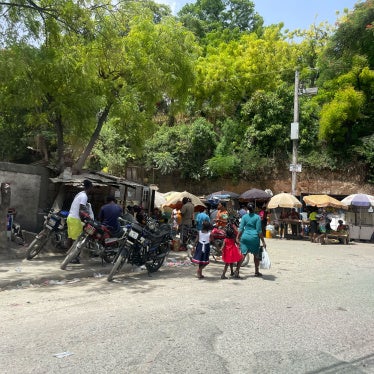The newly-established United Nations Human Rights Council (UNHRC) is charged with overseeing and addressing the human rights situation around the world. Created in March 2006 the Council has 47 state members. It replaces the UN Commission on Human Rights which also was a state entity with more members and a slightly narrower mandate.
The Human Rights Council is using its first year amongst other things to set up operating processes including when it will meet, which items will be on the agenda, how victims of human rights violations will have access, and what kinds of decisions will be made.
The establishment of this structural and procedural framework is crucial for how effective the United Nations will be in addressing human rights violations in years to come. If the permanent agenda is too specific new types of human rights violations might be excluded. If the permanent agenda is too broad, issues that are seen as “marginal” might be lost.
At times, the human rights of women are seen as both too specific and too marginal. This certainly was the experience at the now defunct UN Commission on Human Rights. The Commission, created in 1946, waited over 50 years to create a specific agenda item to deal with violations of the human rights of women. Even so, it dedicated only 6 hours out of a 6-week agenda to this issue.
Our petition calls for the Council to take concrete measures to include women in three specific areas:
Agenda and programme of work:
We want the Human Rights Council to work as effectively to ensure the enjoyment and protection of human rights by women and girls as it does for men and boys. We want the Human Rights Council to recognize that women and girls historically and continually suffer the most from sex-based discrimination, including violence against women.
- We believe in order to ensure the full recognition of the acts of violence and sex-based discrimination that women and girls suffer, the Council must continue to set aside one full day to discuss the human rights violations that affect this group.
- We believe the Council needs to make the human rights of women a cross-cutting issue for all its discussions regarding specific human rights violations and country situations.
Review of the Special Procedures
The United Nations Human Rights Council (UNHRC) oversees a number of independent experts and expert-bodies with specialized information on countries or human rights related themes: the so-called Special Procedures.
As part of its first year review, the Council is reviewing both the mandates and the work methods of these procedures. Human Rights Watch has expressed several concerns about this review processand noted the need to keep and strengthen this essential mechanism to gather independent information on human rights violations.
- We believe the Council must ask all experts and bodies to identify how women and girls are affected by human rights violations in the country they cover and the impact of such violations on women and girls.
- Human Rights Watch believes the Council must continually evaluate the need to consolidate expert mandate, as well as create new mandates, as new human rights violations and crises occur.
Universal Periodic Review
In a process known as Universal Periodic Review (UPR), the UNHRC will review the human rights situation in every member state of the United Nations on a rolling basis.
Human Rights Watch has also made suggestions on how this process might best work:
- We believe that the review of a country’s human rights situation would not be universal or complete without a specific analysis of the human rights of women.
- We believe the Human Rights Council must consider women’s situation and violations of their rights both in its discussions and in the outcome of the review.








